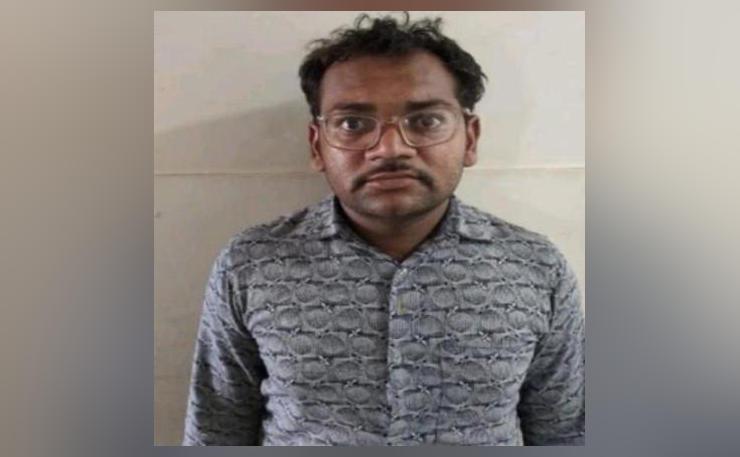
Health Worker Arrested for Spying: Sent New IAF & BSF Sites’ Visuals to Pak, Got ₹40,000
In a shocking case of espionage, a Gujarat-based health worker, Sahdev Singh Gohil, has been arrested for allegedly sharing sensitive information with a Pakistani agent. Gohil, who was employed at a hospital in Gujarat, was arrested after it was discovered that he had been sending photos and videos of Indian Air Force (IAF) and Border Security Force (BSF) sites to a Pakistani agent. The sites in question were newly-constructed or under-construction, and the information shared by Gohil was reportedly of great value to the Pakistani authorities.
According to reports, Gohil was paid ₹40,000 in cash by an unidentified man for his services. In a bizarre twist, he purchased a SIM card using his Aadhaar card and activated WhatsApp on it for the Pakistani agent’s use.
The investigation into Gohil’s activities began after the BSF received a tip-off about a suspicious individual who was allegedly sending sensitive information to Pakistan. The BSF then worked with the Intelligence Bureau (IB) to identify the individual and gather evidence.
Gohil’s arrest is a significant blow to India’s security agencies, which have been battling a rising tide of espionage cases in recent years. The incident highlights the ease with which individuals can compromise national security by sharing sensitive information with foreign entities.
Gohil’s motives for spying are not yet clear, but it is believed that he was likely motivated by financial gain. In an era where espionage can be a lucrative business, Gohil’s actions are a stark reminder of the importance of vigilance and the need for robust security measures to prevent such incidents.
The case also raises questions about the effectiveness of India’s security agencies in preventing espionage. While the BSF and IB have been praised for their efforts in identifying and prosecuting spies, there is a growing concern that the country’s security infrastructure is not adequately equipped to deal with the sophisticated methods used by foreign intelligence agencies.
Gohil’s arrest is also a reminder of the importance of Aadhaar card security. The fact that he was able to purchase a SIM card using his Aadhaar card and activate WhatsApp on it highlights the need for stricter security measures to prevent such incidents in the future.
The case is also a wake-up call for the healthcare industry, which has been criticized for its lack of vigilance when it comes to employee screening. Gohil’s arrest highlights the need for stricter screening processes to prevent individuals with questionable backgrounds from gaining employment in sensitive industries.
As the investigation into Gohil’s activities continues, it is likely that more details will emerge about his motives and the extent of his espionage activities. In the meantime, the incident serves as a stark reminder of the importance of national security and the need for individuals to remain vigilant in the face of threats from foreign entities.






